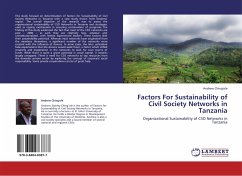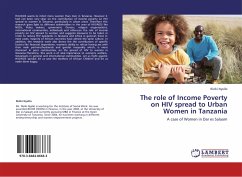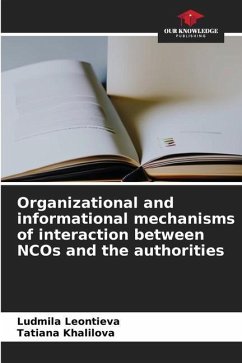
Factors For Sustainability of Civil Society Networks in Tanzania
Organizational Sustainability of CSO Networks in Tanzania
Versandkostenfrei!
Versandfertig in 6-10 Tagen
39,99 €
inkl. MwSt.

PAYBACK Punkte
20 °P sammeln!
This study focused on determination of factors for Sustainability of Civil Society Networks in Tanzania with a case study drawn from Dodoma region. The overall objective of the research was to assess the organizational sustainability of CSO Networks in Tanzania and strategies used as coping mechanisms in ensuring continuation of programs. The finding of this study evidenced the fact that most of the CSO networks are post 2000 as such they are relatively new, amateur and uninstitutionalized, with limited experienced leaders. These factors limit their sustainability potential. Whereas most netwo...
This study focused on determination of factors for Sustainability of Civil Society Networks in Tanzania with a case study drawn from Dodoma region. The overall objective of the research was to assess the organizational sustainability of CSO Networks in Tanzania and strategies used as coping mechanisms in ensuring continuation of programs. The finding of this study evidenced the fact that most of the CSO networks are post 2000 as such they are relatively new, amateur and uninstitutionalized, with limited experienced leaders. These factors limit their sustainability potential. Whereas most networks have originated from the members themselves, a significant number of the networks were created with the influence of donors. In some cases, the later unleashed false expectations that the donors would assist them, a factor which stifled creativity and imagination in the networks to look for own source of funds. While there is quite a great potential in social capital, it remains largely untapped. There is need for CSO networks to tap resources from the domestic private sector by exploring the concept of corporate social responsibility. Some private corporations can be of great help.












